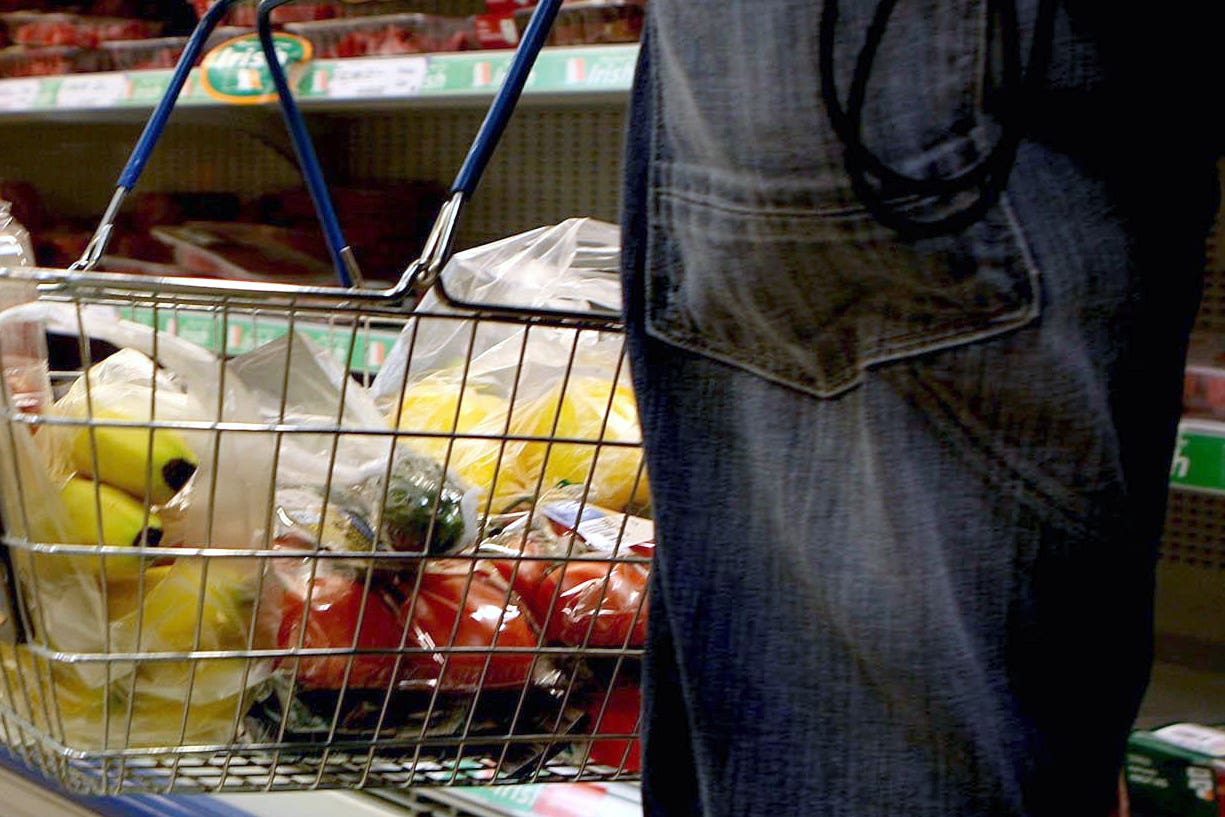More than half of shoppers prepared to boycott greenwashing firms, poll suggests
The poll found that 54% of consumers say they would stop buying from a company if found to have been misleading in its sustainability claims.

Your support helps us to tell the story
From reproductive rights to climate change to Big Tech, The Independent is on the ground when the story is developing. Whether it's investigating the financials of Elon Musk's pro-Trump PAC or producing our latest documentary, 'The A Word', which shines a light on the American women fighting for reproductive rights, we know how important it is to parse out the facts from the messaging.
At such a critical moment in US history, we need reporters on the ground. Your donation allows us to keep sending journalists to speak to both sides of the story.
The Independent is trusted by Americans across the entire political spectrum. And unlike many other quality news outlets, we choose not to lock Americans out of our reporting and analysis with paywalls. We believe quality journalism should be available to everyone, paid for by those who can afford it.
Your support makes all the difference.More than half of UK shoppers are prepared to boycott brands over misleading green claims, a poll suggests.
Financial services giant KPMG surveyed more than 2,000 UK adults on their attitudes towards green products and technologies.
The poll found that 54% of consumers say they would stop buying from a company if found to have been misleading in its sustainability claims.
Meanwhile, 38% said they would stop investing in the company.
On the one hand customers are prepared to stop buying something if it has been linked to greenwashing, but they also admit that they struggle to navigate the labels currently out in the market
The data, gathered by YouGov, found that almost a fifth of UK shoppers (18%) have changed their mind about a company due to misleading green claims – a response that is more pronounced among Londoners at 25%.
Richard Andrews, head of environmental, social and governance at KPMG in the UK, warned that firms are risking their reputations by sharing misleading information on their sustainability performance.
He said: “Companies keen to capitalise on the growing interest in sustainable products should be taking a measured approach; overselling sustainability credentials risks losing customers as well as the reputational damage that will follow.
“While this might often be unintentional, understanding the data behind any sustainability claims is key, as well as ensuring that data has also been verified, if brands are serious about avoiding any greenwashing risks.”
The research also suggests that two thirds of UK shoppers (67%) say they try to seek out green or sustainable options for some of the products and services they buy.
However, a third (33%) of respondents said they were sceptical of green labels and sustainability claims, while a similar amount – 28% – admitted to struggling to know what products were green or sustainable due to inconsistent labelling.
The risks of overselling being ‘greener than green’ are too high
The data showed that consumers’ awareness is strong for established labels such as Fairtrade and Rainforest Alliance certified but awareness around initiatives such as the carbon reduction label, B Corp and the Better Cotton Initiative remains very low.
In terms of sectors, the energy industry (58%) was seen as the most likely to engage in greenwashing, with the fashion industry closely following (57%).
Younger respondents between the ages of 18 to 24 deemed the fashion industry most likely to greenwash at 66%.
Transport and automotive (51%) and grocery, food and agriculture (47%) were also seen as at risk of greenwashing by a large number of consumers, the poll suggests.
Mr Andrews said: “The results present a catch-22 situation for both companies and their customers.
“On the one hand customers are prepared to stop buying something if it has been linked to greenwashing, but they also admit that they struggle to navigate the labels currently out in the market.
“Meanwhile, companies are investing time and money verifying their efforts, but awareness of some of the environmental accreditation schemes remains very low.
“What is clear, is that any signs of greenwashing will diminish trust further, so it is imperative that companies continue to ensure all claims can be evidenced and that as new regulations are introduced, they are understood and adhered to. The risks of overselling being ‘greener than green’ are too high.”